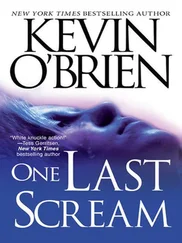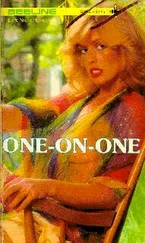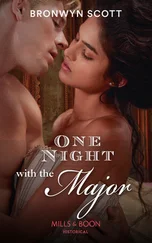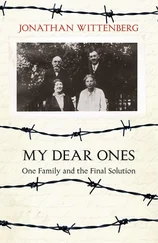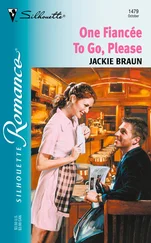Three years later, in 1934, Adolf Hitler is sitting in a box at the small rococo Residenztheater *waiting for the opera to begin. By now he is the German Chancellor, the talk of the world. In the adjoining box is the twenty-one-year-old John Scott-Ellis, celebrating the first night of his honeymoon by taking his young German bride to the opera. John looks to his left. Isn’t that the very same fellow he knocked down three years ago?
The young man leans over. He seems to want to say something. Hitler’s bodyguards are taken aback. Who is he, and what the hell does he want?
John Scott-Ellis introduces himself. He seizes the moment and asks the Führer if he remembers being knocked over in the street three years ago. To his surprise, Hitler remembers it well. ‘He was quite charming to me for a few moments.’ Then the orchestra strikes up, and the overture begins. The two men never meet again.
Over the years, †John often tells this tale of his unexpected brush with Adolf Hitler. ‘For a few seconds, perhaps, I held the history of Europe in my rather clumsy hands. He was only shaken up, but had I killed him, it would have changed the history of the world,’ he concludes of his own peculiar one on one.
TALKS OF THE BOCHE WITH
Chirk Castle, Wrexham, North Wales
Summer 1923
In the summer of 1923, John Scott-Ellis is still only ten years old, yet he has already lunched with G.K. Chesterton and George Bernard Shaw.
John lives in a vast thirteenth-century castle. His father, the eighth Baron Howard de Walden, dabbles in the arts, writing operas, poetry and plays. At one time he owned the Haymarket Theatre, putting on a good many highbrow productions, including works by Henrik Ibsen. When these failed to make money, he was persuaded to stage a comedy called Bunty Pulls the Strings; it ran for three years.
The eighth Baron’s castle acts as a tremendous draw to artists and writers. Young John is now used to passing the time of day with Hilaire Belloc, Augustus John, George Moore or Max Beerbohm. Some of these grandees are more friendly than others. Belloc teaches him all sorts of tricks with paper, such as how to make a bird which flaps its wings when you pull its tail. By cutting out two triangles and placing them on a sheet of paper in a particular way, he also shows him an easy way to prove Pythagoras’ Theorem. ‘While I remember how to do this, I am sad to have forgotten his absolute proof of the Trinity, which he demonstrated in a somewhat similar fashion,’ John recalls in old age. He remembers, too, the Irish novelist George Moore (‘always rather preoccupied’) tackling his father with a problem he was finding impossible to solve.
‘I keep on writing down “she was in the habit of wearing a habit”, and it isn’t right and I can’t think how to alter it.’
‘What about, “she was used to wearing a habit”?’ suggested Lord Howard de Walden. Moore went away happy.
In the summer of 1923, Rudyard Kipling comes to stay at Chirk. The great author and the young boy go for a walk around the garden together. It was in such a setting that Hugh Walpole observed of the five-foot-three-inch Kipling, ‘When he walks about the garden, his eyebrows are all that are really visible of him.’
At the age of fifty-seven, Kipling encourages children to call him Uncle Ruddy. He finds it hard to make friends with adults, but speaks to children as equals, which is how he writes for them too. ‘I would sooner make a fair book of stories for children than a new religion or a completely revised framework for our social and political life,’ he explains.
Among children, he becomes a child. On a trip to South Africa, he lay himself flat on the deck to teach a little boy how to play with soldiers. But he can be short-tempered with those who lack his sense of adventure. He once handed his revolver to a youngster and urged him to fire it. Seeing him hesitate, Kipling snapped, ‘At your age I would have given anything to shoot a revolver!’
But Kipling and John operate on the same wavelength. Kipling has long been fascinated by the paranormal, so he is perhaps attracted by the boy’s unusual powers: John is able to throw a pack of cards face down on the floor and then pick out the four aces. ‘I claim absolutely no strange powers but probably I had, or even have, this ESP slightly higher than others,’ he recollects. One afternoon, a visiting Admiral with an interest in psychic matters asks him to throw two dice, and wish for high. ‘For about twenty throws or more I never threw less than four and frequently double sixes.’ The Admiral then tells him to wish for low. ‘I started with double ones and continued in much the same vein.’
On their walk around the garden, John chats with Rudyard Kipling about Germans. Kipling says he hates them. Their talk turns to aeroplanes. Kipling says they are always trying to knock down his chimneys.
John asks him if he would ever travel in an airship.
‘What!’ exclaims Kipling. ‘Locked in a silver coffin with lots of Boche?!’
Such a quote may seem almost too good to be true, but Kipling has a curious capacity to become his own caricature. Dining with Somerset Maugham at the Villa Mauresque, the conversation turned to a mutual friend. When Kipling declared, ‘He’s a white man,’ Maugham thought to himself, ‘This is characteristic. How I wish, in order to fulfil my preconceptions of him, he would say he was a pukka sahib.’
‘He’s a pukka sahib all right,’ continued Kipling.
After their walk, Kipling accepts John’s invitation to take a look at John’s collection of his complete works in their smart red-leather pocket edition. Kipling offers to sign them for him, but as if by magic, Kipling’s formidable wife Carrie suddenly swoops into the room and tells him not to. This, too, is characteristic. Carrie spends her time protecting her husband from his readers, and is often derided for it. To Lady Colefax she is ‘a super-bossy second-rate American woman, the sort of woman you could only speak to about servants’. A young boy called Henry Fielden was in the habit of dropping in at Kipling’s house, Bateman’s, to borrow books. Once when he arrived he saw Kipling standing at the window, so he waved, and Kipling waved back. But when Henry knocked on the front door, a maid told him that Mr Kipling was not at home. Henry insisted that they had just waved to each other, and the maid rushed away in confusion. A short while later, a furious Mrs Kipling appeared, saying through tight lips that her husband would be down in a minute.
The day after their interrupted book-signing, Kipling takes John to the sheepdog trials in Llangollen. John notes how comfortable Kipling is in the company of the shepherds, ‘getting them to talk and explain all about the trials and their lives’. On their way home, Kipling promises to write a story about these very shepherds. ‘But sadly,’ observes John, by now an old man, ‘he never got round to it.’
HERO-WORSHIPS
Elmira, New York State
June 1889
In 1889, Rudyard Kipling is twenty-three years old, though he looks closer to forty. He arrives in San Francisco on May 28th, after a twenty-day voyage from Japan.
He is greedy for life. He witnesses a gunfight in Chinatown, lands a twelve-pound salmon in Oregon, meets cowboys in Montana, is appalled by Chicago, and falls in love with his future wife in Beaver, north Pennsylvania.
Before he leaves the United States, he is determined to meet his hero, Mark Twain. He goes on a wild-goose chase – to Buffalo, then Toronto, then Boston – before tracking him down to Elmira, where a policeman tells him he spotted Twain ‘or someone very like him’ driving a buggy through town the day before. ‘He lives out yonder at East Hill, three miles from here.’
Читать дальше

